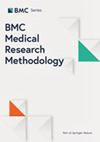“When selling anything to an audience, visible publicity is key:” experiences, barriers, and enablers to participate in a COVID-19 study in Malawi
IF 3.9
3区 医学
Q1 HEALTH CARE SCIENCES & SERVICES
引用次数: 0
Abstract
Many studies in infectious diseases struggle to recruit participants. The SARS-CoV-2 infection, transmission dynamics, and household impact in Malawi (SCATHIM) study reported a refusal rate of 57.2%. Adequate publicity can lead to more people participating in studies. This study explored the reasons for participating in the SCATHIM study. A descriptive qualitative study informed by the theory of reasoned action was conducted in Blantyre between January 2022 and March 2022 to assess factors that influence participation in a COVID-19 study among 10 index cases, 10 caregivers, 10 study decliners, and 5 research staff. The data were collected via in-depth interview guides, audio recorded, transcribed, managed via NVIVO and analysed via a thematic approach. The factors that motivated participation in the study included one’s knowledge of COVID-19; potential access to medical services, including free COVID-19 tests for members of the household; financial reimbursements; and the ability to contribute scientific knowledge. The barriers to participation included minimal publicity of the study amidst a novel condition, perceived stigma and discrimination, perceived invasion of privacy, discomfort with the testing procedures, and suboptimal financial reimbursements. Effective publicity and outreach strategies have the potential to decrease refusal rates in study participation, especially if a condition is novel. Studies on infectious diseases should address stigma and discrimination to promote participation and ensure participant safety."向受众推销任何东西时,可见的宣传是关键:"马拉维参与 COVID-19 研究的经验、障碍和推动因素
许多传染病研究都很难招募到参与者。马拉维的 SARS-CoV-2 感染、传播动态和家庭影响(SCATHIM)研究报告显示,拒绝率高达 57.2%。充分的宣传可以让更多的人参与研究。本研究探讨了参与 SCATHIM 研究的原因。2022 年 1 月至 2022 年 3 月期间,在布兰太尔开展了一项以理性行动理论为指导的描述性定性研究,以评估影响 10 名指数病例、10 名护理人员、10 名研究拒绝者和 5 名研究人员参与 COVID-19 研究的因素。数据通过深度访谈指南收集、录音、转录,并通过 NVIVO 进行管理,然后通过主题方法进行分析。促使人们参与研究的因素包括:对 COVID-19 的了解;可能获得的医疗服务,包括为家庭成员提供免费 COVID-19 检测;经济补偿;以及贡献科学知识的能力。参与的障碍包括:在新的条件下对研究的宣传力度极小、认为受到侮辱和歧视、认为隐私受到侵犯、对检测程序感到不适以及经济补偿不理想。有效的宣传和推广策略有可能降低研究参与的拒绝率,尤其是在病情新颖的情况下。有关传染病的研究应解决耻辱感和歧视问题,以促进参与并确保参与者的安全。
本文章由计算机程序翻译,如有差异,请以英文原文为准。
求助全文
约1分钟内获得全文
求助全文
来源期刊

BMC Medical Research Methodology
医学-卫生保健
CiteScore
6.50
自引率
2.50%
发文量
298
审稿时长
3-8 weeks
期刊介绍:
BMC Medical Research Methodology is an open access journal publishing original peer-reviewed research articles in methodological approaches to healthcare research. Articles on the methodology of epidemiological research, clinical trials and meta-analysis/systematic review are particularly encouraged, as are empirical studies of the associations between choice of methodology and study outcomes. BMC Medical Research Methodology does not aim to publish articles describing scientific methods or techniques: these should be directed to the BMC journal covering the relevant biomedical subject area.
 求助内容:
求助内容: 应助结果提醒方式:
应助结果提醒方式:


